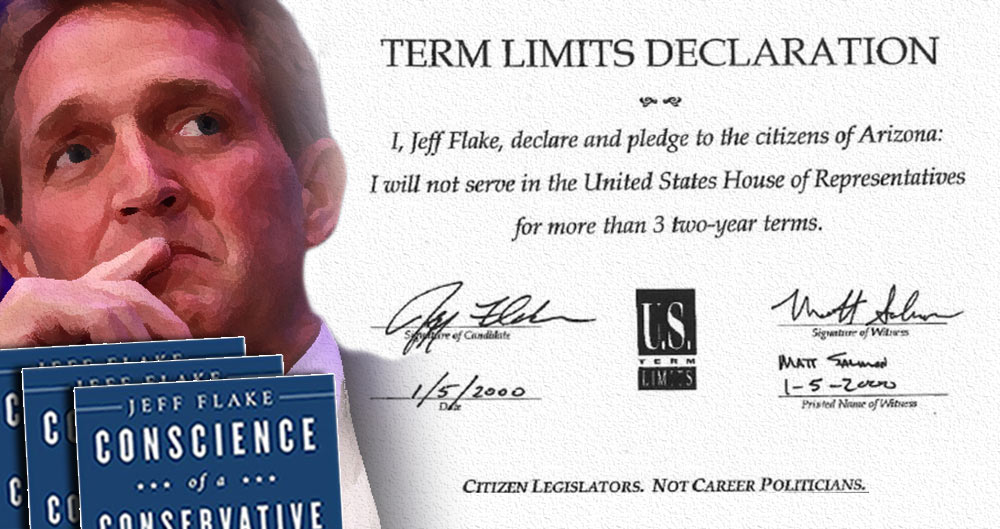It seems exceedingly plausible that the longer one serves as a legislator, the better legislator one would become.
Yet voters back home have noticed something: the longer in office, the less representative their so-called representative tends to become.
No wonder that in those states where Americans have been permitted to vote on congressional terms limits, that vote has been a resounding, “Let’s limit ’em!”
In a Washington Post op-ed, Greg Weiner, associate professor of political science at Assumption College, praised Senators Jeff Flake (R‑Ariz.) and Bob Corker (R‑Tenn.) as “voices for congressional power” and “defenders of congressional prerogative.” He worries their departure weakens Congress as an institution, further eroding a critical check on the president and the executive branch.
“The problem pertains far less to opposition to this president,” Weiner points out, “than to the long-range erosion of congressional resistance to the presidency as an institution.”
This caught my attention because we desperately need Congress to function as a co-equal branch of government and because opponents of state legislative limits* often assert a similar argument: term-limited legislatures are less able to check the power of the governor and executive branch agencies.
“Congress has been in decline for generations,” Weiner acknowledges. What else has been happening over this time? Politicians have been loitering in Congress longer and longer, term after term after term.
Hmmm. The correlation is between a weakened Congress and more experience, not less.
Let’s further note that Flake is only in his first Senate term and Corker his second.
After nearly four decades in office, is, say, doddering Sen. Thad Cochran (R‑Miss.), providing better oversight?
This is Common Sense. I’m Paul Jacob.
* The 15 states that have them — Arizona, Arkansas, California, Colorado, Florida, Louisiana, Maine, Michigan, Missouri, Montana, Nebraska, Nevada, Ohio, Oklahoma, South Dakota — contain 37 percent of us.



